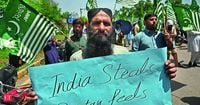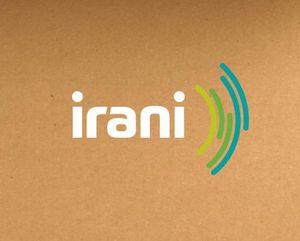On Thursday, April 24, 2025, Uttar Pradesh Chief Minister Yogi Adityanath made a bold statement regarding terrorism in India, particularly in the context of a recent attack on tourists in Pahalgam, Kashmir. He asserted that this incident is indicative of the diminishing power of terrorism in the region, claiming, "The final nail is being driven into the coffin of terrorism." This declaration came during his visit to the ancestral home of 31-year-old Shubham Dwivedi, who tragically lost his life in the attack.
Shubham, whose marriage had taken place just two months prior on February 12, 2025, was honored with full state honors during his cremation, which took place at Deori Ghat in Kanpur. Thousands gathered to pay their respects, reflecting the impact of his loss on the community. Chief Minister Adityanath expressed his condolences to Shubham's family, emphasizing that he was the only son and had recently begun a new chapter in his life.
In his remarks, Adityanath underscored the government's commitment to a zero-tolerance policy toward terrorism, stating, "This government will crush the venomous fangs of terror with absolute resolve." He vowed that those responsible for the attack would face severe consequences, and he condemned the brutality inflicted upon innocent victims, particularly Hindu women. He asserted, "The terrorists and their handlers will be punished for the barbarity inflicted upon Hindu women, stripping them of their sindoor in an act of inhuman cruelty. There should be no doubt about this."
Meanwhile, the broader political landscape in India has also been influenced by this incident. Rajya Sabha MP K. Laxman announced that the Centre would soon implement counter-terrorism measures, likening the upcoming actions to previous cross-border air strikes conducted following prior terror attacks. Laxman criticized the Congress party for allegedly politicizing the tragedy, accusing them of failing to name Pakistan as a perpetrator despite widespread condemnation of the attack. He stated, "The Congress Working Committee (CWC) has not named Pakistan even once during its meeting as being responsible when the entire world was doing so."
Laxman also highlighted a significant decrease in the number of terror attacks since the abrogation of Article 370, noting that attacks have fallen from a high of 219 to just 46. He argued that while terrorism has not been completely eradicated, there has been a drastic reduction in incidents, countering claims from opposition parties that the removal of Article 370 would lead to increased violence.
In light of the recent attack, the Indian government has taken various measures to respond. These include suspending the Indus Waters Treaty, closing the Attari checkpost, and asking some Pakistani embassy officials in New Delhi to leave. However, some analysts argue that these actions are insufficient to create a significant impact. A recent opinion piece suggested that India should leverage its market power to pressure countries like the US, Russia, and China to halt arms sales to Pakistan and cut financial support for its military.
In particular, the article highlighted a recent $397 million aid package for Pakistan's F-16 fleet, which India should seek to block. The piece emphasized that while the US has urged Pakistan not to use these fighters against India, historical precedents suggest that such conditions are often ignored. It pointed out that China is the source of 81% of Pakistan's arms imports, which total around $4 billion, and that India should use its economic influence to create a long-term deterrent against terrorism.
Moreover, the article proposed that India could take further steps to restrict the supply of pharmaceuticals to Pakistan, a move that would significantly impact the country, as alternatives from other sources would be considerably more expensive. The suggestion was made that India should also consider reducing its reliance on Chinese goods, especially given the current geopolitical climate.
As the situation evolves, the Indian government faces the challenge of balancing national security with economic considerations. The call for a special drive to identify and deport illegal immigrants from Pakistan and Bangladesh, as suggested by N.V.S.S. Prabhakar, underscores the heightened focus on national security in the wake of the Pahalgam attack.
In summary, the recent terror attack in Pahalgam has reignited discussions on terrorism in India, prompting strong governmental responses and political maneuvering. As leaders like Yogi Adityanath and K. Laxman call for decisive action against terror groups, the Indian government is faced with the task of navigating both domestic and international pressures to ensure the safety and security of its citizens.




